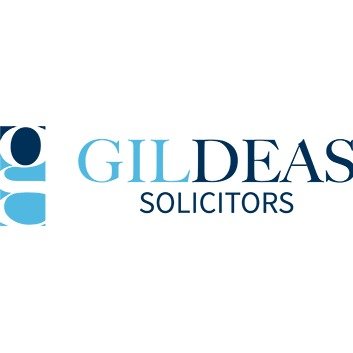Best Premises Liability Lawyers in Edinburgh
Share your needs with us, get contacted by law firms.
Free. Takes 2 min.
List of the best lawyers in Edinburgh, United Kingdom
About Premises Liability Law in Edinburgh, United Kingdom
Premises Liability law in Edinburgh falls under the larger umbrella of Scottish law. Generally, this law pertains to accidents and injuries which occur on somebody else's property as a result of their negligence. This could be a personal residence, place of business, or public space. The law aims to protect anyone from a visitor, employee, tenant, or even a trespasser from hazardous conditions that should have been corrected, or at the very least sufficiently warned against by the property owner or manager. In many cases, the key issue revolves around 'reasonable' care in maintaining safe conditions on the property.
Why You May Need a Lawyer
Should you suffer an injury due to unsafe conditions on any premises, you may need a lawyer to help you navigate the complex legality of seeking compensation. A legal professional can assist in determining the degree of negligence, if any, occurred, and who was responsible for maintaining the safe condition of the premises. They can also lend their knowledge of the anticipated compensation, probable outcomes, and legal process. If there are multiple culpable parties, an experienced lawyer can be instrumental in devising a strategic approach for the claim.
Local Laws Overview
In Edinburgh, and other parts of the United Kingdom, the Occupier's Liability Act 1957 is highly relevant when we talk about Premises Liability Law. The act stipulates that an occupier of a property has a common duty of care towards its visitors. Meanwhile, the Occupier's Liability (Scotland) Act 1960 also states that even trespassers could be owed a duty of care. Essentially, a property owner or tenant (the occupier) is liable if someone gets injured due to a hazard they knew or ought to have known about and did not take reasonable steps to prevent.
Frequently Asked Questions
1. Who is considered an 'occupier'?
An 'occupier' is not necessarily the owner of the premises. It is someone who exercises control over the premises such as a tenant, caretaker, or even a contractor carrying out works on the premises.
2. What does 'reasonable care' mean?
'Reasonable care' is a legal term indicating a degree of caution that an ordinary, prudent person would exercise in similar circumstances. What is deemed 'reasonable' can vary, based on the circumstances and the individuals involved.
3. Are children given special consideration in cases of premises liability?
Yes. Owners and occupiers must take into consideration that children are less careful than adults and should thus, expect and anticipate the unforeseeable harm that could be caused to a child.
4. Can a landlord be held responsible for an injury caused by their tenant?
Generally, the liability falls on the person in control of the premises, which usually is the tenant. However, if a landlord retains control over certain parts of the premises, they could be held responsible for injuries sustained in that area.
5. Can I claim compensation for stress and trauma following an injury on premises?
Yes, you could claim compensation for psychological injuries including stress and trauma following an injury, if you can demonstrate that the symptoms are a direct consequence of the injury.
Additional Resources
Health and Safety Executive (HSE) is the national independent watchdog in the UK for work-related health, safety, and illness matters. They are a useful resource for understanding your rights and regulations concerning premises health and safety. For more local matters, the City of Edinburgh Council operates a variety of health and safety services providing advice and guidance for businesses, landlords and tenants.
Next Steps
If you believe you have a case of premises liability, consider obtaining all relevant evidence, such as photographs of the defective premises, medical records related to your injury, and records of any communication with the occupier about the incident. You should then consult with a legal professional to discuss your case. Most law firms offer a free initial consultation where they will evaluate your claim and guide you on the next steps.
Lawzana helps you find the best lawyers and law firms in Edinburgh through a curated and pre-screened list of qualified legal professionals. Our platform offers rankings and detailed profiles of attorneys and law firms, allowing you to compare based on practice areas, including Premises Liability, experience, and client feedback.
Each profile includes a description of the firm's areas of practice, client reviews, team members and partners, year of establishment, spoken languages, office locations, contact information, social media presence, and any published articles or resources. Most firms on our platform speak English and are experienced in both local and international legal matters.
Get a quote from top-rated law firms in Edinburgh, United Kingdom — quickly, securely, and without unnecessary hassle.
Disclaimer:
The information provided on this page is for general informational purposes only and does not constitute legal advice. While we strive to ensure the accuracy and relevance of the content, legal information may change over time, and interpretations of the law can vary. You should always consult with a qualified legal professional for advice specific to your situation.
We disclaim all liability for actions taken or not taken based on the content of this page. If you believe any information is incorrect or outdated, please contact us, and we will review and update it where appropriate.








